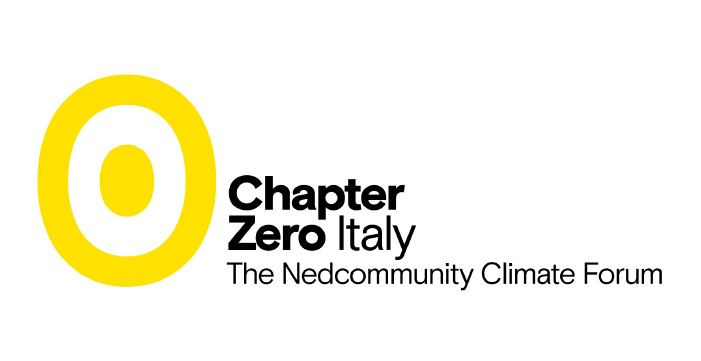
Host:
Chapter Zero Italy
Moderator:
Silvia Stefini, Chair Steering Committee, Chapter Zero Italy
Panellists:
- Francesco Surace, Head of Corporate Governance Italy, Georgeson
- Alberto D’Aroma, Senior Account Manager, Georgeson
- Katia Riva, Chief Sustainability Officer, Atlantia
- Valentín Alfaya, Sustainability Director, Ferrovial
- Andreas Bork, Senior Investor Relations Officer, Shell Plc
- Andrew Gebelin, Investment Stewardship Director, EMEA and APAC, Vanguard
- Sabrina Bruno, CGI Board, Independent director, Full Professor of Private Comparative Law, Steering Committee, Chapter Zero Italy
This session focused on the situations of board driven resolution across Europe, to understand drivers and implications. European Annual General Meetings have seen voluntary resolutions on climate strategy (Say on Climate) in 2021 (17 cases) with an increase in 2022 (34 cases). The UK and France have been the countries with most of the votes, but the phenomenon is spreading across Europe. It is an advisory resolution, where companies disclose the GHG emissions and their strategy to reduce them. The industries that more frequently have been using this mechanism are energy and industrial services.
Francesco Surance and Alberto D’Aroma from Georgeson provided a comprehensive overview of the resolutions with the positions that investors took and an analysis of proxy advisors recommendations. A panel of Chief Sustainability Officers in 3 companies explained their rationale and lessons learned.
Katia Riva spoke about Atlantia, a global player in toll roads, airports, railways and mobility services, with 2021 revenues of €6.4B and presence in France, Italy, Spain and Latin America, listed to the Milan Stock Exchange. Atlantia submitted say-on-climate in 2022, the first to do so in Italy, with the rationale of communicating in a structured way a very transformational strategy. The process was useful to emphasize the importance of the company’s ambition and to engage all stakeholders.
Valentin Alfaya represented Ferrovial: also, a global player in Infrastructure – toll roads, construction, airports and energy infrastructure/mobility, with €6.8B of revenues in 2021, and major presence in North America and in Spain, UK, Poland, listed to Madrid Stock Exchange. For Ferrovial, who submitted the climate vote in 2021 and 2022, this was the result of a long journey of shareholders engagement – started a decade ago – which added rigor and consensus over time.
Andreas Bork explained the position of the energy company Shell, which has shares traded on London Stock Exchange, Euronext Amsterdam and New York Stock Exchange. For Shell, the climate agenda is a central point of the company’s strategy and the say-on-climate resolution has been an important step for a clear communication to shareholders and other stakeholders on the path forward; it also combined with continuous engagement.
Andrew Gebelin from Vanguard illustrated the diversity of positions across investors. While certain asset managers encourage say-on-climate resolutions, Vanguard is more cautious: they recommend companies with material climate risks to develop a climate strategy with clear goals and comprehensive Task Force on Climate-Related Financial Disclosures (TCFD)-aligned disclosure and to engage with shareholders to explain it. However, he emphasized that the board remains fully accountable on the strategy itself and the shareholders’ vote (which, if offered, should be framed as an advisory vote on climate reporting) does not dilute this accountability.
Sabrina Bruno, member of CGI board, independent director and full professor in Private Comparative Law, clarified the legal framework of the say-on-climate resolution in the European context. It is legitimate for boards to submit a say-on-climate vote to shareholders as directors are fiduciaries to them and hearing their view can be part of the process to take informed decisions (which is one of directors’ duties). However, a climate resolution is only a consultative step that does not have managerial implications: the board should still change the strategy if deemed appropriate. A shareholders’ vote does not oblige directors: both in case of approval and disapproval. For European companies there is structured regulation in place that defines clearly the duties and responsibilities of directors with reference to climate related risks and opportunities: from disclosure managerial consequences arise for boards to manage identified risks and embed identified opportunities in the strategy setting. This is a board primary responsibility, even though shareholders should vote against certain climate targets. Responsibility and liability on climate are with boards only. A shareholders’ vote on climate remains primarily a communication tool.
The board of directors has a major task in ensuring that the industrial strategy has climate embedded into it, with targets and goals: this is what shareholders need to see and understand in any type of engagement on climate – which is only going to increase as the 2030 and 2050 deadlines get closer.
Ambition to Action: Key actions for boards
Boards should focus on making sure that climate strategy is well grounded on data and clearly communicated to stakeholders through engagement initiatives. In the highly-regulated European context, Say-on-Climate is an additional communication option that should be evaluated based on the specific objective and context of the company. The exercise in itself could be useful to add rigor in the process of climate disclosure, and it is impactful when it mobilizes the entire organization, sets clear targets and it is fully operationalized in the business.
This session summary was provided by the host.